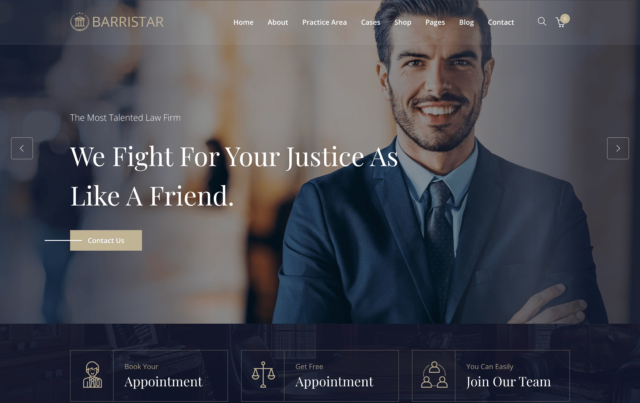Attorney Advertising Rules for the State of Rhode Island
Read for more information on the rules for online advertising for Rhode Island attorneys
- Rhode Island Attorney Advertising Rules: Comprehensive Overview
Attorneys practicing in Rhode Island must adhere to specific advertising regulations outlined in the Rhode Island Rules of Professional Conduct, particularly Rules 7.1 through 7.5. These rules ensure that legal advertising is truthful, non-misleading, and upholds the integrity of the legal profession. Below is a detailed overview of the key provisions governing attorney advertising in Rhode Island.
Rule 7.1: Communications Concerning a Lawyer’s Services
-
- Prohibition of False or Misleading Communications:
- Lawyers must not make false or misleading communications about their services.
- A communication is false or misleading if it contains a material misrepresentation of fact or law, or omits a fact necessary to make the statement considered as a whole not materially misleading.
- Avoiding Unverifiable Claims:
- Attorneys should not make claims that cannot be substantiated or verified.
- Comparisons with other lawyers’ services are prohibited unless they can be factually substantiated.
- Prohibition of False or Misleading Communications:
Rule 7.2: Advertising
-
- Permissible Advertising Methods:
- Lawyers may advertise their services through written, recorded, or electronic communication, including public media.
- All advertisements must comply with Rule 7.1.
- Submission and Retention of Advertisements:
- A copy of each print advertisement (excluding yellow page advertisements), a recording of each radio advertisement, and a videotape of each television advertisement must be sent to the Supreme Court Disciplinary Counsel prior to or within 48 hours of the first dissemination of such advertisement.
- Another copy of each advertisement must be retained by the lawyer for three years after its last dissemination, along with a record of when and where it was used.
- Payment for Recommendations:
- Lawyers shall not give anything of value to a person for recommending the lawyer’s services, except that a lawyer may:
- Pay the reasonable costs of advertisements or communications permitted by these rules.
- Pay the usual charges of a legal service plan or a not-for-profit lawyer referral service.
- Pay for a law practice in accordance with Rule 1.17.
- Refer clients to another lawyer or a nonlawyer professional pursuant to an agreement not otherwise prohibited under these Rules that provides for the other person to refer clients or customers to the lawyer, if:
- The reciprocal referral agreement is not exclusive.
- The client is informed of the existence and nature of the agreement.
- Lawyers shall not give anything of value to a person for recommending the lawyer’s services, except that a lawyer may:
- Mandatory Disclosures:
- Any communication made pursuant to this rule shall include the name and office address of at least one lawyer or law firm responsible for its content.
- Contingency Fee Advertisements:
- Advertisements indicating that no fee will be charged if no recovery must conspicuously state if the client will be responsible for costs or expenses regardless of the outcome.
- Referral Practices Disclosure:
- Lawyers or law firms that advertise a concentration in particular fields of law and refer the majority of such cases to other attorneys must clearly state:
- “Most cases of this type are not handled by this firm, but are referred to other attorneys.”
- Or, if applicable: “While this firm maintains joint responsibility, most cases of this type are referred to other attorneys for principal responsibility.”
- Lawyers or law firms that advertise a concentration in particular fields of law and refer the majority of such cases to other attorneys must clearly state:
- Permissible Advertising Methods:
Rule 7.3: Direct Contact with Prospective Clients
-
- Solicitation Restrictions:
- A lawyer shall not solicit professional employment from a prospective client by in-person, live telephone, or real-time electronic contact when a significant motive is the lawyer’s pecuniary gain, unless the person contacted is:
- A lawyer.
- Has a family, close personal, or prior professional relationship with the soliciting lawyer.
- A lawyer shall not solicit professional employment from a prospective client by in-person, live telephone, or real-time electronic contact when a significant motive is the lawyer’s pecuniary gain, unless the person contacted is:
- Prohibited Solicitations:
- Solicitation is prohibited if:
- The prospective client has made known a desire not to be solicited.
- The solicitation involves coercion, duress, or harassment.
- Solicitation is prohibited if:
- Required Disclosures:
- Written, recorded, or electronic solicitations must include the words “Advertising Material” on the outside envelope and at the beginning and end of any recorded or electronic communication, unless the recipient is a lawyer or has a prior relationship with the lawyer.
- Solicitation Restrictions:
Rule 7.4: Communication of Fields of Practice and Specialization
-
- Stating Practice Areas:
- Lawyers may communicate the areas of law in which they practice.
- Claims of Specialization:
- Lawyers shall not state or imply they are certified as a specialist in a particular field of law, unless:
- They have been certified by an organization approved by an appropriate authority or accredited by the American Bar Association.
- The name of the certifying organization is clearly identified in the communication.
- Lawyers shall not state or imply they are certified as a specialist in a particular field of law, unless:
- Mandatory Disclaimer:
- Communications indicating specialization must include the disclaimer: “The Rhode Island Supreme Court licenses all lawyers in the general practice of law. The court does not license or certify any lawyer as an expert or specialist in any particular field of practice.”
- Stating Practice Areas:
with a public or charitable legal services organization and are not otherwise in violation of Rule 7.1.
Rule 7.5: Firm Names and Letterheads
-
- Jurisdictional Limitations:
- If a firm operates in multiple jurisdictions, any jurisdictional limitations of lawyers not licensed to practice in a particular jurisdiction must be clearly indicated on the firm’s letterhead or in its advertising.
- Trade Names in Advertising:
- Trade names are allowed as long as they are not misleading or imply a false connection with a government entity, charitable organization, or another public entity.
- Jurisdictional Limitations:
Record-Keeping Requirements
-
- Retention of Advertising Records:
- Attorneys must retain copies of all advertisements for at least three years following their last dissemination.
- Records must include when and where the advertisement appeared, as well as any supporting documentation, such as scripts, recordings, or proofs.
- Electronic Records:
- Digital and online advertisements must also be preserved in a durable, retrievable format. This includes websites, social media posts, and email communications.
- Retention of Advertising Records:
Additional Considerations for Online Advertising
Social Media and Websites
-
- Applicability of Rules:
- All online content, including law firm websites and social media posts, must comply with the same rules as traditional advertising.
- Transparency in Testimonials:
- Client testimonials and endorsements used on social media or websites must not create unjustified expectations or imply guaranteed results.
- Disclaimers must accompany any reference to specific case outcomes.
- Applicability of Rules:
Use of Videos and Dramatizations
-
- Video Advertising:
- Videos that feature actors or dramatizations must include disclaimers indicating that the scenes are simulated and not actual client cases.
- Video Advertising:
Enforcement and Compliance
Oversight by the Rhode Island Supreme Court Disciplinary Counsel
-
- All advertisements must be submitted to the Rhode Island Supreme Court Disciplinary Counsel for review prior to or within 48 hours of dissemination. This ensures compliance with the state’s rules and ethical standards.
Consequences of Non-Compliance
-
- Attorneys found in violation of Rhode Island’s advertising rules may face disciplinary action, including:
- Warnings or reprimands for minor infractions.
- Fines or suspensions for more serious violations.
- Disbarment in cases of repeated or egregious misconduct.
- Attorneys found in violation of Rhode Island’s advertising rules may face disciplinary action, including:
Advisory Opinions
-
- Attorneys unsure of the compliance of their advertisements can seek advisory opinions from the Rhode Island Supreme Court Disciplinary Counsel. This step helps mitigate the risk of ethical violations.
The attorney advertising rules in Rhode Island, outlined in Rules 7.1 through 7.5 of the Rhode Island Rules of Professional Conduct, are designed to promote truthful and ethical advertising practices. These regulations ensure that all communications are transparent, non-misleading, and in the best interest of potential clients.
By following these guidelines, attorneys can market their services effectively while maintaining the integrity of the legal profession. For further clarification or assistance, attorneys are encouraged to consult the Rhode Island Supreme Court Disciplinary Counsel or review advisory opinions to ensure full compliance.
Our marketing packages include the following
Search Engine Optimization
Paid Search Management
Legal Content Development
Website Design
Live Chat
Social Media Management









